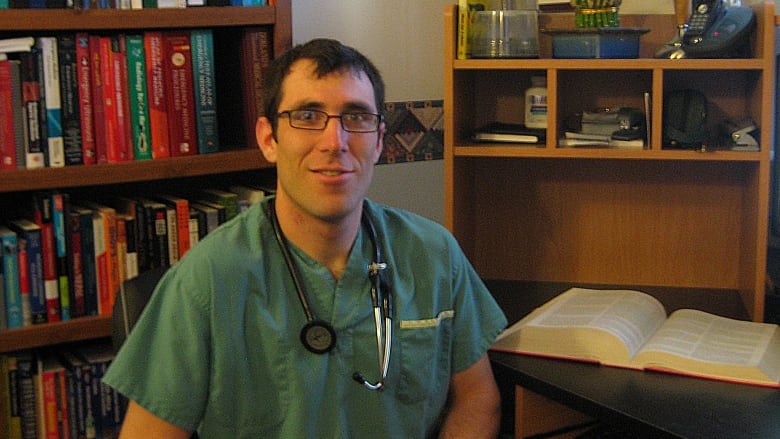Wikipedia's medical errors and one doctor's fight to correct them
'I realized that I could fix the internet,' says Wiki doctor

You can't always believe what you read on the internet. That is particularly true when it comes to medical information in the online encyclopedia Wikipedia.
But one doctor is on a mission to change that.
"I realized that I could fix the internet," said Dr. James Heilman, who works as an emergency room physician in Cranbrook, B.C.
"And I sort of got hooked. And I've been busy trying to fix the internet ever since," he said.
Since 2008, Heilman has been editing and improving the accuracy of medical information found on Wikipedia in his free time and advocating other doctors to follow suit.
"We know Wikipedia isn't perfect. We know it can be better," said Heilman.
His goal is to improve the accuracy and simplicity of the top 200 medical articles on Wikipedia. Articles on cancer, diarrhea and hepatitis A are some of the articles that have already been reviewed and approved.
Studies have shown that, on average, at least 50 per cent of doctors use Wikipedia in their practice. Heilman says the website is an easy way for physicians to jog their memories.
"Many people have the misconception that all doctors have photographic memories — we don't. We forget stuff just like everyone else."
For medical students, Wikipedia is their second most used information source. Despite the potential for misinformation, the doctor says the public doesn't need to be worried.
"Many students are using this as a starting point. The further along they are in their education, the more likely they are to use multiple sources."
Medical content viewed 5 billion times
Heilman believes doctors and medical students are turning to Wikipedia for the same reason as many members of the public — the information is easily accessible and presented in plain language.
In 2013, medical-related content on Wikipedia was accessed five billion times. Heilman encourages patients to use the website, as long as they always question what they read and use multiple sources.
"The internet is an opportunity for patients to get involved in their own care," said Heilman. "They can read about the disease they have to a greater extent than what their doctor was able to tell them in a set amount of time."
On mobile? Click here to see a Q & A with Dr. James Heilman about Wikipedia
In his fight to bring high quality health information to people around the world, Heilman has one more passion — translating those top 200 articles from English into Wikipedia's 286 other languages.
Heilman says he is collaborating with Translators Without Borders, a group which links translators around the world with NGOs working in health, nutrition and education.
"We're creating some of the first medical content to ever exist in some languages," said Heilman.
With files from the CBC's Lien Yeung